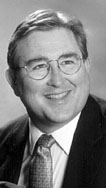The Vagabond has heard of Colvin’s Mountain in the past. Joyce Stocks, a direct descendant of the Colvin family, recently came to the Vagabond. She mentioned her family and said that there will be a Colvin family reunion on Saturday July 28, from 12 – 3 p.m. at the Carnes Recreation Center in Attalla There will be a covered dish, door prizes and good fellowship. This will be the family’s first annual party, so hopefully many people will come to help build a family tree.
Also, Patsy Abel recently told the Vagabond that her husband, Kenneth Abel, was the grandson of Major Colvin. In addition, Susan Wright said that Major Colvin was her grandfather. The Vagabond did get to see the major’s burial site in Rainbow City and his old home place in Hokes Bluff. While at the old home place, the Vagabond met a very nice person, Larry McCreless, who allowed the Vagabond to make photos of the beautiful area in which the Colvins once lived. Larry also spoke about the nearby springs and where the house once was located.
The Vagabond has attempted to put together as much of the history of the Colvin family he could find. As with any genealogical research, there’s always something new under the sun. The Vagabond hopes that this will cause many persons to research for more accurate answers and to find answers to such questions as what happened to Major Colvin’s first wife and when married his second wife.
Major Alford Hardwick Colvin was born in the year of 1807 at Chesterfield County, South Carolina. His parents were Andrew Feaster Colvin (1785 – 1849) and Jemima Petrie Colvin (1785 – 1872).
Colvin came in a wagon train consisting of 45 covered wagons headed to Monroe and Ruston, La. The wagon train consisted of brothers, sisters, aunts, uncles and cousins. The trip was 17 months long and nearly 1,000 miles. Some family members believe Colvin was in the area as early as the late 1820s. He definitely was in Alabama by 1849, as records were found wherein Colvin received land from the U.S. government.
The traveling party included scouts that rode ahead and picked places to cross rivers and creeks. When the group arrived in Alabama, it came through Ford Valley and camped at one of three springs next to what is now known as Colvin Mountain.
The next morning, everybody was breaking camp and getting ready to roll, except the major. He found the spring to his liking and decided to stay at this place. He entered the government land and built a big log house.
The major’s fabulous six-chimney home was located just below and north of a gap in the mountains that is on the current Calhoun/Etowah County line and called Colvin’s Gap.
Major Colvin owned many slaves and operated a very large farm and plantation. He sold large amounts of timber and manufactured a red whiskey that he colored by adding tobacco stems to the beverage.
The major was the first white man to live in what was once Benton County, Ala. The Colvin clan has grown to a large number since that time. Colvin’s neighbors were tribes of Cherokee Indians to the north and Creek Indians to the south.
The Colvin clan never moved back to South Carolina. The family brought everything on this wagon train, including horses, cows, dogs, slaves and equipment for a blacksmith shop. Mares, colts, cows and calves were born on the trip. There even was a midwife to deliver babies and a vet for livestock, so there was no problem in that regard.
The major was a lover of good horses and would trade a horse for 40 acres of land. The major and nearby Indians became great friends. He lived there several years and improved his place. Between 1860 and 1866, possibility after the Civil War, someone from up north came by and bought Colvin’s holdings. As a result, the major moved deep into Etowah County, 10 miles westward on Steele Station Road.
He bought property and lived there till his death in 1892.
Alford Hardwick Colvin also was a Justice of the Peace. He actively prepared land deeds and marriages and was involved in church and schools. The Colvin clans were great hunters and loved to fish. The family enjoyed music, good horses and ‘purty’ women. Most of the men were tall and large and had a strong determination to finish a task, regardless how tough.
These men’s forefathers all came from Ireland and England In the 1700’s, settling in Virginia, Massachusetts, New York, Maine, Maryland, South Carolina, Texas and Georgia.
The Colvin clan consists of all walks of life. Family members became ministers, deacons, missionary, doctors, steel workers, businessmen, electricians, plumbers, lawyers, retired U.S. servicemen, U.S. Postal workers, barbers, farmers, lumber jacks, dancers, hair dressers, traders and sales people.
Major Colvin first married Lucy Crobsy. The couple had nine children – seven girls and two boys. Between 1850 and 1860, Colvin was married to Mary Jane McDonald Colvin (1817 – 1892). They had three sons – William Alfred Colvin (1856 – 1935), James Madison Colvin (1859 – 1932), and Thomas Mabry Colvin (1862 -1941).
Major Alford Hardwick Colvin died in 1888 and was buried at Old Harmony Cemetery on Rainbow Drive in Rainbow City, Alabama.





